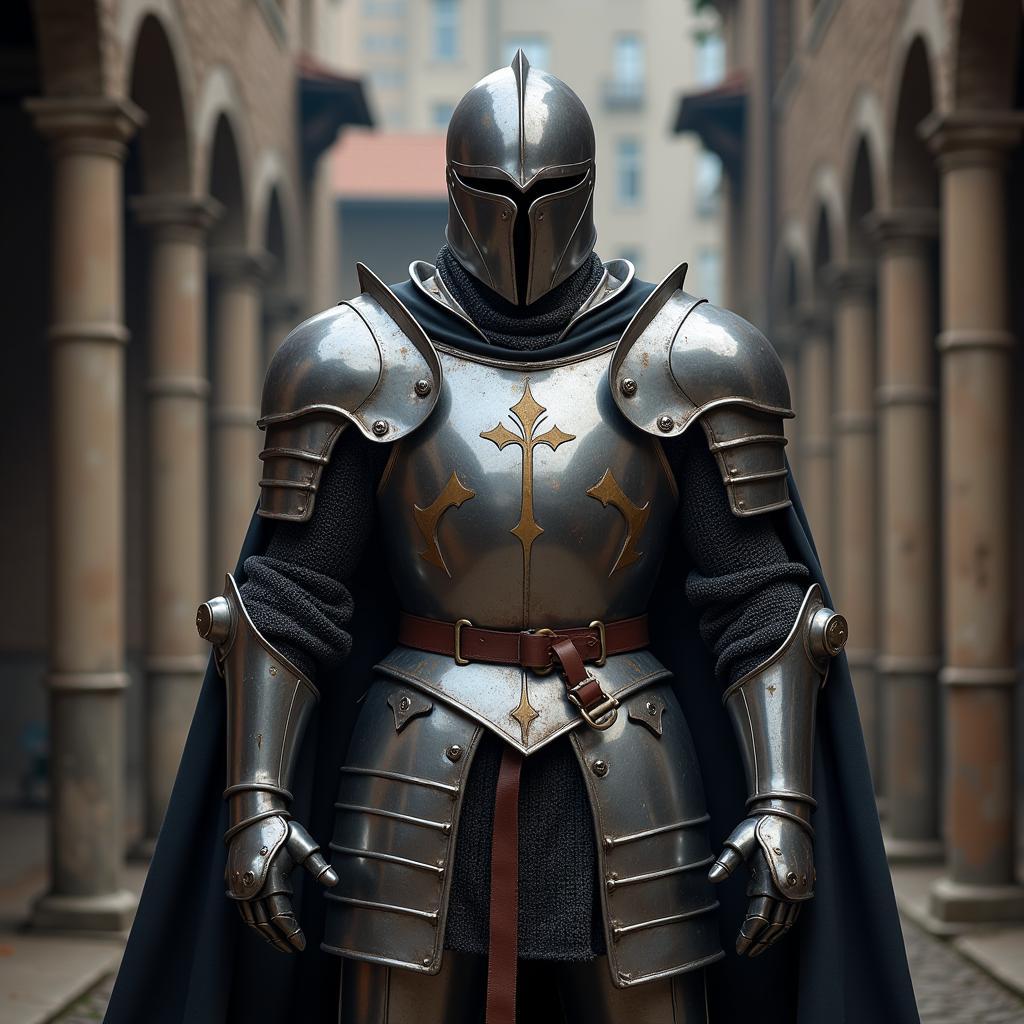Armor, shield, and pool are fundamental concepts in many video games, especially in the RPG and strategy genres. They directly impact a character’s survivability and ability to withstand damage. Understanding how these mechanics interact is crucial for both new and experienced players to make informed decisions in combat and character progression.
Breaking Down the Basics: Armor, Shield, and Pool
Before delving into the complexities, let’s define each term:
-
Armor: Armor typically represents physical defense and mitigates damage from sources like swords, arrows, or claws. Think of it as the toughness of your character’s armor plating.
 Knight in Full Plate Armor
Knight in Full Plate Armor -
Shield: Unlike armor, shields often represent a temporary or rechargeable layer of protection. They can absorb a specific amount of damage before breaking or needing a cooldown period. Visualize this as an energy barrier or a literal shield held by the character.
-
Pool: The pool, often referred to as the health pool or hit points (HP), is the total amount of damage a character can sustain before being defeated. It’s essentially the character’s life force.
How Armor, Shield, and Pool Interact
The relationship between these three elements determines a character’s overall survivability. Here’s a simplified breakdown:
- Damage Calculation: When a character takes damage, the game usually calculates the reduction from armor and shield before deducting it from the health pool.
- Armor Reduction: Armor typically provides a percentage reduction to physical damage. For example, 100 armor might reduce incoming physical damage by 20%.
- Shield Absorption: Shields, on the other hand, absorb a fixed amount of damage. If a shield has 50 points, it will absorb 50 damage before breaking or depleting.
- Pool Depletion: Once armor and shield mitigations are applied, the remaining damage is subtracted from the health pool. When the pool reaches zero, the character is defeated.
Strategic Implications and Gameplay Considerations
Understanding these mechanics can significantly impact your gameplay:
- Character Building: Depending on the game, you might choose to prioritize armor, shield, or health pool based on your playstyle. A “tank” character might benefit from high armor and shield, while a rogue might prioritize dodging and critical hits.
- Itemization: Selecting the right gear is crucial. Some items might boost armor, while others enhance shield capacity or regeneration rate. spawn collectables can also provide temporary boosts or unique effects to these mechanics.
- Combat Tactics: Knowing your enemy is essential. If an enemy deals primarily physical damage, focusing on armor is advantageous. Against opponents with powerful burst attacks, a strong shield might be more beneficial.
Expert Insights
“Mastering the interplay of armor, shield, and pool is crucial for success in any game featuring these mechanics,” says Alex Nguyen, a veteran game designer at VNG Games. “Experiment with different builds, learn enemy attack patterns, and don’t underestimate the power of strategic itemization.”
Conclusion
Armor, shield, and pool are more than just numbers on a screen. They represent a dynamic system that adds depth and strategy to gameplay. By grasping these concepts and their interactions, you can make informed decisions in character progression, item selection, and combat tactics, ultimately enhancing your gaming experience.
FAQ
1. Does shield regenerate faster than health?
Shield regeneration rates vary greatly depending on the game and specific items or abilities.
2. Can armor reduce all types of damage?
Typically, armor is most effective against physical damage. Magical or elemental damage might have separate resistance mechanics.
3. What are the best ways to increase my health pool?
Leveling up, specific character attributes, and certain items can increase your maximum health pool.
4. Can shields protect against status effects like poison?
This depends entirely on the game’s mechanics. Some shields might offer partial or complete immunity to specific status effects.
5. How do I know which defensive stat to prioritize?
Consider your playstyle, the type of damage you typically encounter, and the specific challenges of the game content you’re tackling.





